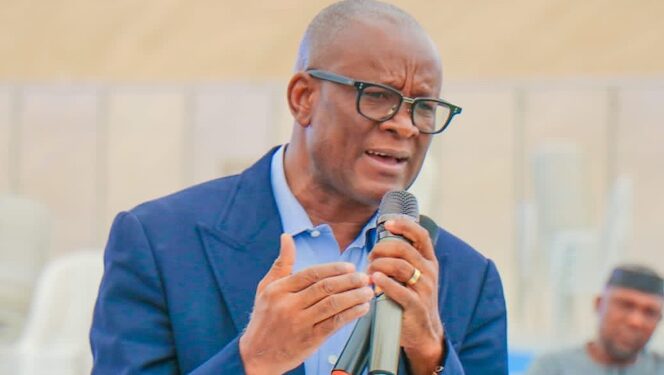The Federal Government is taking decisive steps to end Nigeria’s dependence on imported garments — currently valued at approximately $4 billion annually — by reviving the country’s once-thriving textile and garment industry.
Minister of State for Industry, Trade, and Investment, John Enoh, disclosed this on Wednesday during a stakeholder engagement session with players in the Cotton, Textile, and Garment (CTG) sector in Abuja.
According to Enoh, the government is collaborating with the Bank of Industry (BoI) and other critical institutions to facilitate access to finance and machinery for garment and textile businesses, while also promoting the production of Made-in-Nigeria goods.
“We must ask ourselves: do we prioritise cotton, textile, or garments? The reality is that garments stimulate the entire chain,” the minister said. “Countries like Bangladesh, Myanmar, and Kenya started by importing textiles but built strong garment export markets that justified investment in spinning, weaving, and cotton farming.”
He also highlighted the role of the newly launched Industrial Revolution Work Group (IRWG), which aims to address sectoral challenges on a case-by-case basis and help revive dormant industries across Nigeria.
Local Manufacturers Lament Challenges
President of the Garment and Accessories Manufacturers Association of Nigeria, Adenike Ogunlesi, decried the staggering amount Nigerians spend on imported clothing, describing it as unsustainable and detrimental to local growth.
Ogunlesi expressed frustration over the repeated failure of past revival efforts and revealed that despite Nigeria’s domestic market for garments being valued at over $6.8 billion, the sector contributes only 2% to the country’s GDP.
“If we could capture just 10 per cent of Bangladesh’s export market, we would generate $3.3 billion in exports and create over a million direct jobs in Nigeria’s garment sector,” she stated.
She and other stakeholders urged the federal government to provide concessional power supply to operators, revive the dormant CTG Fund under BoI, and incentivize investments in world-class industrial parks capable of hosting integrated textile and garment factories.
Need for Bold Vision and Incentives
Textile expert and CEO of Afroconsulting Trade and Services Limited, Navdeep Sodhi, said the textiles and clothing industry remains a vital engine of growth for developing economies, providing direct and indirect employment for over 100 million people globally.
Sodhi emphasized that Nigeria is the largest market in the ECOWAS region with a textile industry worth nearly $7 billion, yet over 90% of the market is currently served by cheap imports, many of which enter through unregulated or grey channels.
“This not only deprives the country of massive revenue but also denies citizens thousands of decent jobs,” Sodhi said. “There is an urgent need to reverse this trend.”
He called for a long-term strategic vision through 2035 to rebuild a $10 billion textile and clothing industry, urging government commitment and the creation of a competitive business environment.
Sodhi further recommended tax breaks and duty exemptions, including a minimum five-year holiday from VAT and import duties on raw materials and industrial inputs, to enable local firms to scale and compete with international producers.
Toward a Self-Sustaining CTG Sector
Stakeholders unanimously agreed that reviving the textile and garment sector is not only key to import substitution but also to job creation and inclusive economic growth.
The renewed federal effort — backed by institutional reforms, funding support, and a strong political will — is being hailed as a potential game-changer for Nigeria’s industrial transformation.


